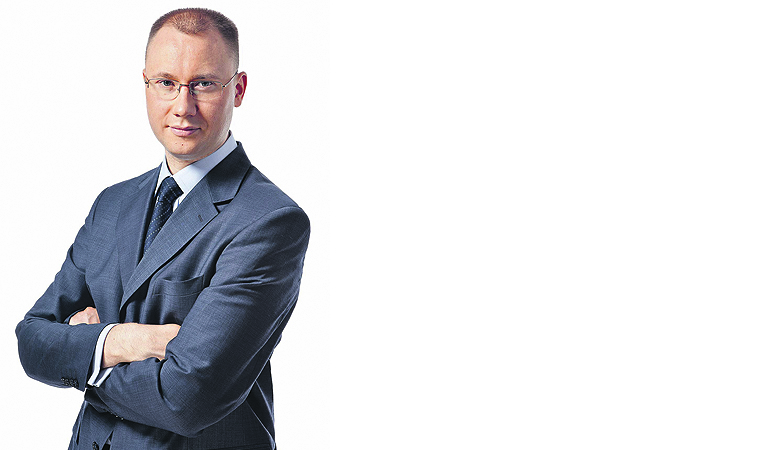
Globalization is not a Luxury
back to contents– What Rosatom is to do this year in terms of globalization? What are the main milestones?
– This year may turn decisive in many ways. During the last years we saw globalization as something easy to afford, since we were doing good. Today, keeping in mind the budget shortfall, we have to decide what exactly globalization is for us: a luxury or the only option for growth? I hope, this year we will revise the projects connected with global initiative. That’s why the program of training of leaders is that important: the voices of its participants, while changing the agenda or priorities, have to be heard. I personally believe that globalization is the only option for growth, especially taking into consideration the restrictions of domestic market. I hope that the participants have the same opinion and will be able to prove it with their projects.
– You analyze the experience of the world companies, both atomic and non-atomic. The representatives of some of them made their presentations at the module. Would some of their experience possibly work for Rosatom?
– We do welcome the participation of our partners representatives. We were visited by the Rolls-Royce specialists, we keep in touch with Еlectricitе de France (EDF), Fortum and even Areva, the former being the rival of Rosatom. There are some other companies as well. For me the most impressive experience was that with EDF in China. The Taishan NPP building is a good example of global partnership. The project is very complex, includes the establishment of a joint venture, joint supply chain management, sharing responsibility of financing, technology transition and work results. Today we imply similar models in Turkey, we also view this pattern for the Baltic NPP and some other new directions.
The experience of our foreign colleagues offers us two basic challenges: first, it is impossible to realize partners’ projects not changing the principled approach. We are used to work according to Russian rules that are not quite clear and understandable for our partners; meanwhile it is often disturbing for us not to follow these rules, seems risky and unsafe. However I am quite sure that for us it is absolutely necessary to be able to change, if we really want to take part in wide-scale projects. The second challenge is to make these projects successful, since it is possible only upon organizing the work, using both our and our partners’ strong points. We are used to the idea that we are the best and it is a mistake not to take into consideration some good competence of the partners, necessary for the market.
The example of the French-Chinese cooperation shows that this is possible, provided the things are based on understanding of each-others’ strong sides and on necessity of creating neither French nor Chinese, but the French-Chinese approach to the project management, decision making and work organization. At this point we have a lot to learn. There is a whole world in front of us, and the development of these kinds of systems: French-Russian, English-Russian, Russian-Brazilian, is a big and interesting challenge. I believe we can do it if we work on it.
– Each company understands globalism in its own way, having its criteria. What is global Rosatom then?
– That’s fair not only for each company, but for each person. Someone will say: ”There are people of five nationalities working with me in the same office room”, the other will tell about business negotiations conducted in five time zones, while the third person will spend his or her working time travelling for business abroad. Now, speaking about global Rosatom… Let me make a parallel with ballet. Recently we received a Rolls-Royce delegation and I accompanied them to the Bolshoi Theatre, La Bayadère ballet. The Chairman of the board of directors, Sir Simon Robertson is at the same time a director of the Covent-Garden Royal Theatre, which means, a true expert in the subject. Sir Simon highly appreciated the stage reconstruction, the quality of performance, the orchestra, the acting skill of our actors. He kept repeating: why, this is Russian ballet.
Thus, for me it is important to know that the company we are working on is not something faceless; Rosatom always will be a Russian company. I would like professional foreign society to see Rosatom similar to how Englishmen see Russian ballet – a highly professional company, able to attract clients from the whole planet, but at the same time, still Russian.
I really liked the words of Andrew Witty, GlaxoSmithKline General Director, on the subject: “We have to be something in this world and for us this “something” is British Company. It is sort of a challenge to call an international company British, however it didn’t fall apart after these words; no Indian, nor Canadian nor German quitted his or her job. Because they managed to find a form to make the company appreciated everywhere, with people of all nationalities able to work there for their countries’ profit. I would like Rosatom to become similar.




